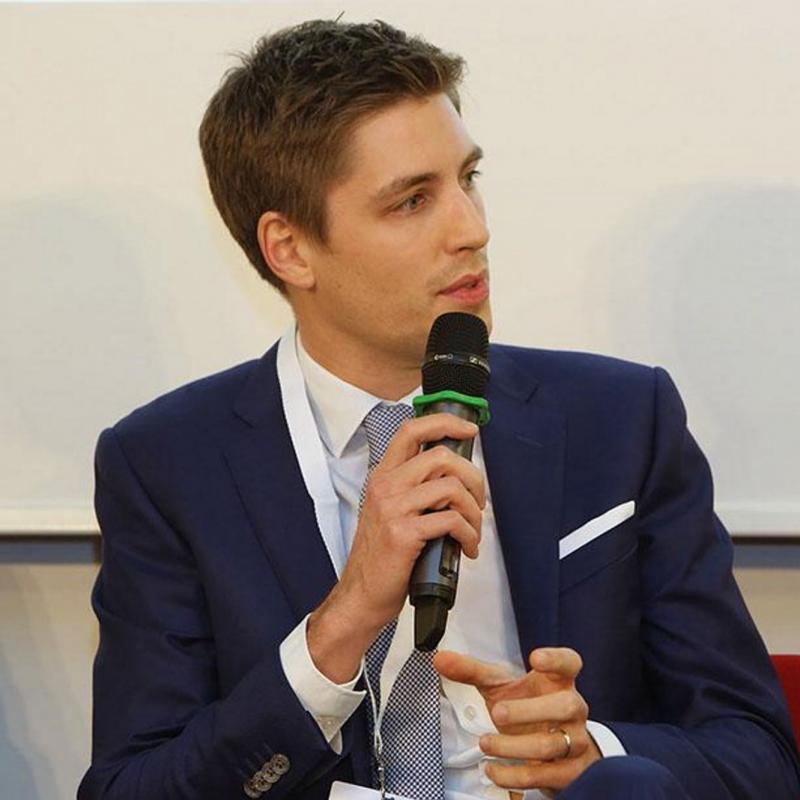Breadcrumb
Determined to forge a career spanning the public and private sectors, Jonathan Eckart (MPP 2012) sought a professional school with an interdisciplinary approach.
“The Blavatnik School’s combination of practice, science, philosophy, and theory was unique; I knew it would give me a practical and philosophical foundation for starting the next stage of my career. The one-year Master of Public Policy is compact while also offering breadth, as well as the opportunity to study under eminent faculty such as Paul Collier.”
His summer project in the Office of the Chief of Staff to the President of Sierra Leone allowed him to put into practice what he had learnt on the course. He worked on a project assessing the main barriers to growth and prosperity in the country, and set up an initiative through which civil society, government and business can collaborate to make the most of natural resource wealth.
“The summer project was outstanding for me. The work I was doing blended theory and practice – I was on the ground, surveying people in most remote parts of country, and also applying the concepts we covered on the MPP.”
His time in Sierra Leone confirmed that he wanted to pursue a career working across the public and private domains, with elements of strategy and sustainability. This objective took him to the World Economic Forum in Geneva, where he worked to make economies more sustainable and inclusive, looking for practical steps that can be taken through public-private initiatives.
Out of that research emerged his current project, the Global Battery Alliance, which he developed and now manages. The Alliance, based at the World Economic Forum, pursues a multi-stakeholder approach to making battery technology more sustainable throughout the entire lifecycle, from the mining of raw materials to the disposal or recycling of used products. Batteries are core technology for lowering the carbon footprint of the global economy, but this is often undermined by unsustainable practices across the value chain.
Jonathan is a key player in setting up an alliance to move all stakeholders in the battery-making process – from miners to technology firms and international organisations – towards a shared goal of sustainability. The initiative is also establishing country-specific projects to tackle social and environmental challenges such as child labour in mining for battery materials. It thus addresses the Sustainable Development Goals of decent work and economic growth, climate action and reduced inequalities, among many others.
“We need to ensure that investment in battery technology filters through to all those involved, especially those who may not currently be benefiting.”
Jonathan is doing the groundwork over the next year to ensure the longevity of the Alliance; finding funding, setting clear targets and achieving initial results. To date, the Alliance counts over 50 member organisations and has mobilised over $80 million USD in funding from the African Development Bank to address child labour.
The MPP has been helpful in many aspects of this work. He’s called upon the learnings of option modules on development economics and energy, as well as the applied skills gained: strategy, communications, presentation, budgeting and finance and writing policy briefs. He will keep using the foundations he established while at the Blavatnik School to develop his cross-sector career.
“What motivates me is being able to work across public and private dimensions. I want to contribute to organisations with a mission to promote the public good while bringing in private sector drive and dynamism.”
April 2019

